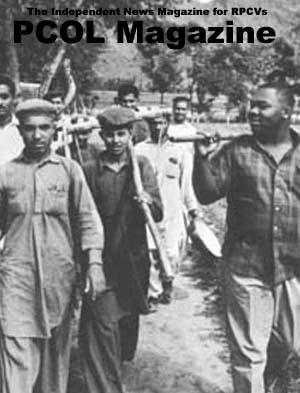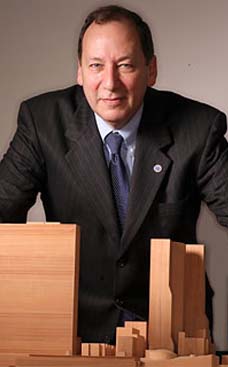
To use a term familiar to your readers: interest in public diplomacy is a lagging indicator. Rising interest in public diplomacy in Washington is confirmation that something has already gone seriously wrong. All the theory would suggest otherwise -that public diplomacy is best used as an instrument to reduce the probability or severity of international conflict; yet, interest in and support for public diplomacy only rises in times of serious conflict. People who value educational exchanges understand this contradiction. They work always to be independent of, but not too distant from, the country's national security apparatus.
Robert T. Coonrod writes: Rising interest in public diplomacy in Washington is confirmation that something has already gone seriously wrong
Rising interest in public diplomacy signifies something is wrong
Published: December 24 2007 02:00 | Last updated: December 24 2007 02:00
From Mr Robert T. Coonrod.
Sir, Running Richard Haass’s article “The Atlantic becomes a little wider” above Martin Wolf's “The dangers of living in a zero-sum world economy”, as you did on December 19, suggests a challenging set of questions facing policy makers: Who to rely upon, oppose or partner with to ward off a zero-sum devolution? How to assess the actions or rhetoric of current or prospective leaders?
There is a cottage industry now growing in Washington that is trying to improve one of the tools available to policy makers. Public Diplomacy is now in vogue. By rough count there have been 33 recent reports critiquing US government performance. There is a growing debate among university teachers of international relations over what constitutes public diplomacy and who practises it. It is the most widely discussed subset of the Smart Power/Soft Power basket of ideas now in circulation, and there are at least a handful of proposals being discussed to establish new institutions outside of government to compensate for the government*s failures to understand the need, allocate the necessary resources, or assign sufficient priority to public diplomacy.
This renewed interest is encouraging, but without a deeper appreciation of the kinds of questions suggested by your two articles, it will be ineffective. To use a term familiar to your readers: interest in public diplomacy is a lagging indicator. Rising interest in public diplomacy in Washington is confirmation that something has already gone seriously wrong. All the theory would suggest otherwise -that public diplomacy is best used as an instrument to reduce the probability or severity of international conflict; yet, interest in and support for public diplomacy only rises in times of serious conflict. People who value educational exchanges understand this contradiction. They work always to be independent of, but not too distant from, the country's national security apparatus.
It will be “hard”, as Mr Wolf points out, to sustain a positive-sum world economy. It will be even more difficult in Mr Haass's future of “selective co-operation”. If we continue to treat public diplomacy as we have, it will remain a lagging indicator. We will know we are failing if we again witness renewed interest in it. On the other hand, if we decide that an effective public diplomacy can improve our chances of making good investments in human ingenuity and of better international co-operation, we can agree on structure and invest the money necessary to make it effective.
Robert T. Coonrod,
President,
Public Diplomacy Council,
The George Washington University,
Washington, DC 20052, US













